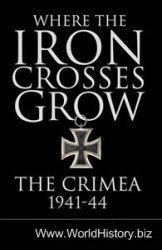In his speech Jason listed Macedonia, a fertile region on his northern borders, as among his targets. Its timber would allow him to build a fleet that he would man from among the peoples he had conquered. As it turned out, it was Macedon (as the state is normally called, Macedonia is the region) that was to do the conquering in the mid-fourth century. As Jason had realized, it was a fertile area with good rainfall and potentially strong if its resources were mobilized. The centre of Macedonia was the Emathian plain on the Aegean coast. It was too marshy for human occupation, but the well-watered mountain slopes around the plain had supported settlements since prehistoric times. There were other river plains, such as that of the Strymon to the east, and here again settlements were grouped on the mountain slopes. Inland, Macedonia became more mountainous, with the Pindus Mountains, for instance, forming a natural barrier with Molossis (later Epirus) to the west. (See E. Borza, In the Shadow of Olympus: The Emergence of Macedon, Princeton and London, 1990.)
There was little natural coherence to Macedonia and many of its boundaries, particularly those to the east and north, were ill defined. The state depended at any one time on the success of its king in holding off the states which surrounded it—Illyria to the north, Thrace to the east, Molossis to the west, and Thessaly to the south. The Athenians, in search of the same raw materials as Jason, were continuously probing along the coastline. As for the peoples of the region, very little is yet known about them. A condescending Athenian such as Demosthenes could talk of ‘that Macedonian riffraff which could not even offer a good slave for sale in days gone by’ but some may have spoken Greek dialects (the extent to which Greek was spoken in
Macedonia is a subject of hot dispute) and certainly there is evidence of Greek cults in the area. It is meaningless to try and establish whether the Macedonians were, on this evidence, ethnically Greek or not. (See the good discussion in this issue in Patrick Geary, The Myth of Nations, Princeton, 2002.) What was important for the years to come was that Macedonia had large resources that could give it considerable power if used effectively by its rulers.
The Macedonian monarchy had shown remarkable survival skills. By the fourth century it was already some 300 years old, and its longevity seems to have depended on its success in preserving the heartland of the kingdom from invaders. The kings themselves claimed that their family was of Greek origin, from Argos, in fact, although it has been argued that this claim was invented in the first half of the fifth century by an earlier monarch, Alexander I, to improve his relationships with the Greek world. The judges at the Olympic Games accepted the claim enough to make a distinction between the Macedonian royal family, who were allowed to take part in the Games, and the Macedonians as a whole, who were not. The monarchy seems to have depended on the personal qualities of each king. Treaties were made directly with him, he controlled the army absolutely, and when, as happened in the case of Philip II, he appeared at a Panhellenic festival, it was as an individual, not as the representative of his state.




 World History
World History









